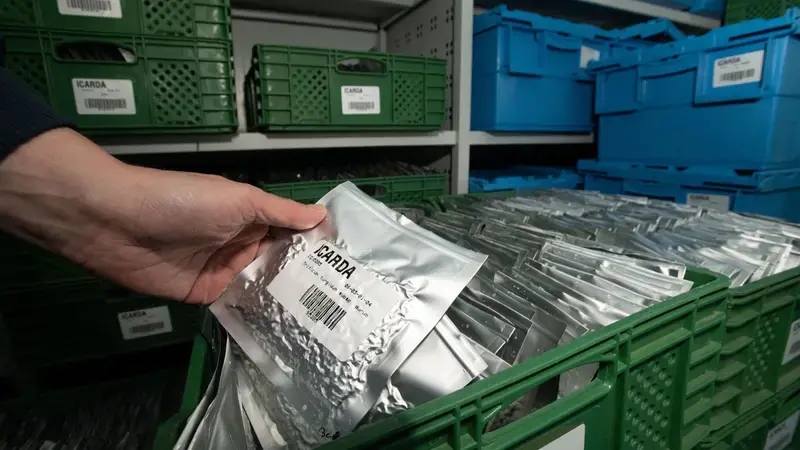Community based in-situ conservation of dryland agrobiodiversity

Ahmed Amri - Honorary Head of Genetic Resources Unit
ICARDA has developed a holistic community-driven approach for promoting in-situ/on-farm conservation of landraces and wild relatives in non-tropical drylands.
ICARDA plays a crucial role in the collection, conservation, and sustainable use of non-tropical dryland agrobiodiversity through the activities of its genebanks and International Nursery system located across the MENA region. Dryland agrobiodiversity, which sustains the livelihoods of poor communities and food security, is under severe threat due to climate change and the expansion of monocropping, calling for concerted efforts for its conservation using both ex-situ and in-situ approaches.
In addition to unique collections of crops and forages of global importance conserved in its genebanks, ICARDA has developed an innovative approach, promoting in-situ/on-farm conservation of landraces and wild relatives of cereals, food and forage legumes, dryland fruit trees, and vegetables. This holistic and community-driven approach empowers farmers and introduces management plans that combine policy, institutional, socio-economic, and technological options, allowing yield improvement, better productivity, income diversification, and more resilient livelihoods.
-------------------------------------------------------------------------------------
IMPACT
-
Development of a framework of national biodiversity policies and legislation including institutional and policy options to be undertaken at the international, regional, national, and community levels.
-
For the first time, data on the status and trends of agrobiodiversity and its related threats has enabled the establishment of new natural reserves.
-
General public awareness has expanded after biodiversity was introduced in the school curricula, through fairs, and other activities.
-
Significant yield increases of up to 50% have been achieved through participatory breeding, integrated pest management, water harvesting, etc.
-
An efficient informal seed production and delivery system for promoting the use of landraces has been established.
-
The training of local communities -mainly women- on local food processing, and alternative sources of income has improved household income.
Further Reading:
Solh, M., A. Amri, A., T. Ngaido, T. and J. Valkoun. 2003. Policy and education reform needs for conservation of dryland biodiversity. Journal of Arid Environments. 54: 5-13. (En). https://repo.mel.cgiar.org/handle/20.500.11766/13073
Malika Martini, Ahmed Amri, Kamel Shideed, Mohamed Ajlouni, Raghed Assi, Younes Sbeih and Ali Khnifes. 2008. Gender dimension in the conservation of agrobiodiversity in West Asia countries. Journal of Socio-economics Volume 37 : 365-383.
Richard J. Thomas, Eddy de Pauw, Mansoor Qadir, Ahmed Amri, Mustapha Pala, Amor Yahyaoui, Mustapha El-Bouhssini and Kamel Shideed. 2008. Increasing the resilience of dryland agro-ecosystems to climate change.
